5 Issues D1A Must Face At Upcoming Annual Meeting
5 Issues D1A Must Face At Upcoming Annual Meeting
Alex Goff looks at five issues that the D1A college leagues must deal with at their upcoming meetings.
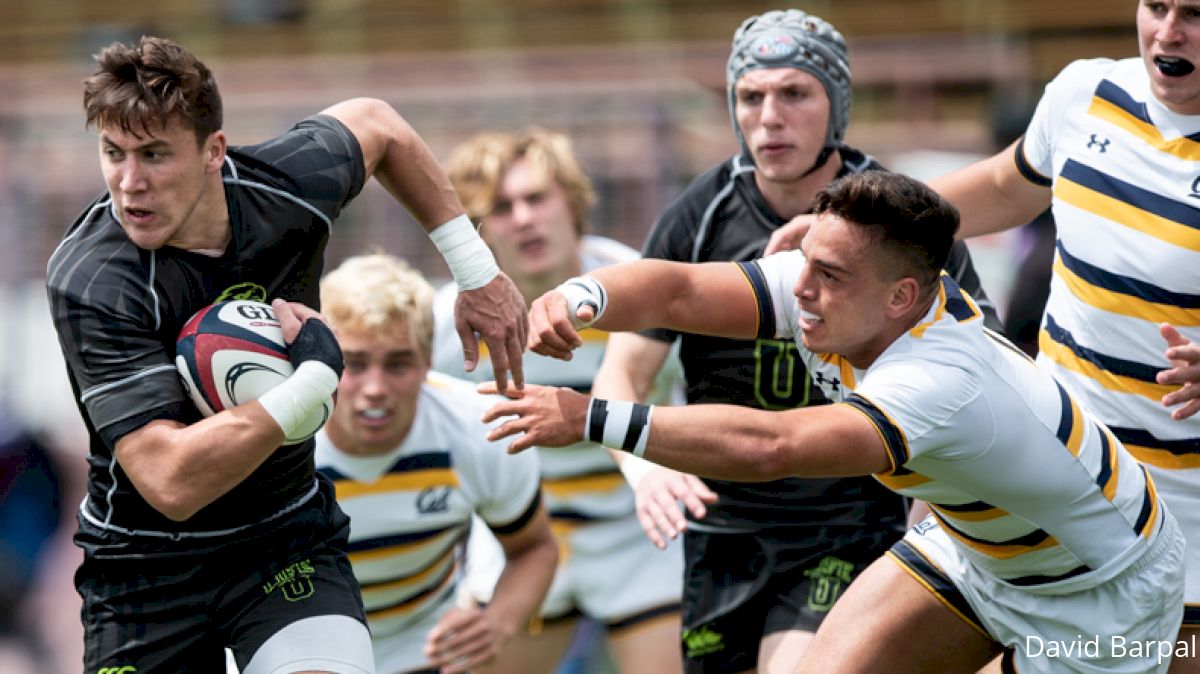
The coaches and committees of D1A men's college rugby will meet in Denver this weekend to discuss what's next for the league, and, boy, do they have a lot of ground to cover.
With the tenuous marriage of Varsity Cup and D1A and a flood of strong personalities within the college game (Cal head coach Jack Clark is the most cited, but not the only one), high-level college rugby has some work to do to navigate some problems.
Some of those problems are of D1A's own making. Some are just how college life is changing, and some have to do with... the weather.
1. The Seasonality Question
Seasonality is not going away. Northeast and Midwest teams want to play in the fall. Teams in the South and Texas area could go either way and tend to play in both. Teams in California love the spring. Many want a solution to be found that brings everyone together, but forcing teams to make changes they don't want to make could just help splinter D1A again.
There's a move afoot to create a separate competition that shifts the season a bit—like having playoffs in March or early April and then switching to sevens. It's worth thinking about. For the most part, college conferences are comfortable where they are comfortable. Where we run into problems is...
2. The Waiting Game
With the season split into mostly fall and mostly spring schedules, it's difficult for a team that has an automatic spot in the playoffs (conference winners) to wait four or five months to actually play that playoff game. It's even more difficult for teams on the bubble.
This season, Army and Notre Dame College were the two most prominent teams playing the waiting game. Do you bank on a playoff spot or do you concentrate on sevens and worry about the sevens championships coming up? In the end, both teams tried to do both and NDC certainly suffered, especially when the Falcons ended up out of the playoffs because they wanted a specific matchup to save money (more on that later).
Currently, D1A's official position is, "Hey, them's the rules and you just have to wait." But that might not be tenable going forward. At some point, you might see more and more fall teams (it's already happening in the Big Ten) opt out of those at-large spots.
A solution? Award the top two teams in each conference a spot in the playoffs, giving both top finishers a chance. Another solution? Award fall at-large spots in December—really, those spots haven't changed that much. One more suggestion? Hold part of the playoffs in the fall.
3. One Big Happy Family
It's not one big happy family. We've had one season since the end of the Varsity Cup and it's not been all smooth sailing. Cal's Jack Clark made it plain from the start that he was less than thrilled with how D1A was run, and while you might conclude he was never going to be all in with a competition he dismissed for seven years, that doesn't mean his viewpoint should be ignored.
We're starting to hear about various plans for new and different competitions, with programs looking for what fits with them. Decision makers in D1A either need to tread carefully or stomp on the flowers and accept that D1A might be smaller in the future.
3. The Academic Discussion
Life University won D1A and is not an NCAA school—it is in the NAIA. Life's victory has prompted, once again, arguments that there should be some sort of academic cutoff in D1A. It's a shame, of course, as such grumbling unleashes an especially vile form of snobbery, a snobbery that lies latent within the college rugby community.
It's worth noting that we at FloRugby have interviewed a number of players from Life University and found them all to be intelligent, articulate, and polite. The same goes for players from other supposedly less-selective schools. Many have outperformed students at supposedly more rigorous schools, at least in terms of how they speak when interviewed.
While D1A needs to be especially rigorous in ensuring all rugby players are full-time students and meeting the school's academic requirements for participation, it is not D1A's nor USA Rugby's job to examine how selective a school is, or what is its field of study.
If you want to go down that road, you'll find the world of high-level education riddled with self-created potholes—supposedly world-class institutions that accept poor students because of athletic ability, connections, or wealth.
4. Professionals
You're not allowed to play college rugby if you've played professionally. Except, you totally can. If you play for the USA, you can get paid and retain your college eligibility. That's generally accepted in college sports circles—you're not expected to turn down a USA call-up, but you're also not expected to pay money to do it.
But... a professional academy overseas? USA Rugby and D1A have taken the approach that if you're in school while at an academy, the academy pay is basically like a scholarship. That's unlikely to change.
Major League Rugby? This is where it gets very dicey. When the PRO league started, USA Rugby allowed student-athletes to play in PRO and return to college. D1A and USA Rugby need a hard-and-fast policy right now that addresses players playing for a professional team.
Maybe they should look to the NCAA for inspiration, because if you follow the NCAA rules, you can't even suit up with, or train with, professionals.
Maybe that goes too far, but what about being paid to play in the MLR? What if one level of pay is just reimbursement for expenses and another level challenges college eligibility? Whatever it is, this needs to be sorted out very, very specifically.
5. Seeding
D1A rugby changed the D1A semifinal matchups in late April in order to cut travel costs and ensure that there would be a big crowd for the semis. Was it the right decision? Yes and no.
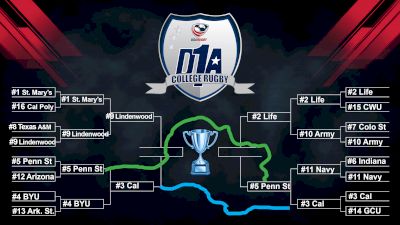
Yes, it was the right decision if travel costs could be cut (that was somewhat in doubt as the quoted cost for Cal to go to Life University was very high). It was the right decision if there was a big crowd at the new semi, Lindenwood vs. Cal at Saint Mary's. The crowd was OK but not huge. In fact, TV coverage avoided showing the crowd because it was fairly small.
So the reasons had merit, but it's not clear whether the solution solved anything.
And then there's the issue of Notre Dame College. Before the playoffs, NDC asked to be matched up with Life University in order to save costs. Notre Dame College was rebuffed, told that such a move would require changing NDC's ranking by two spots and D1A rules said you can only change a ranking by one spot to create the playoff matchups.
But, of course, when the semis arrived, everything was changed in the middle of the playoffs. Notre Dame College, then, should not be sanctioned or banned or anything for asking to do something D1A was willing to do later.
In addition, there's the matter of the seeds themselves. D1A's leadership said that the league regulations allowed for seed shifts. That's true, but a seed is exactly that: something you plant and it grows into the tree (the bracket). If you change it, you use a term "re-seeding." The NHL re-seeds after each round of the playoffs. But the NHL also makes sure everyone knows how it works ahead of time.
So we're going to say it again—put it in the contract; put it in writing. Almost every problem USA Rugby, Varsity Cup, and D1A Rugby have run into has been because the agreements and contracts don't spell out action for every eventuality. Adjust seeds, change matchups, or re-seed brackets all you want, just get it in writing.
Related Content
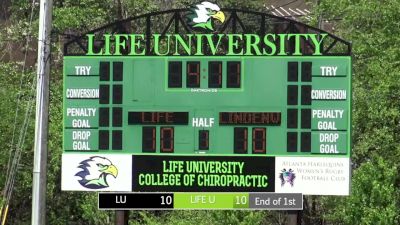 Replay: Life vs Lindenwood | Apr 13 @ 1 PM
Replay: Life vs Lindenwood | Apr 13 @ 1 PMApr 13, 2024
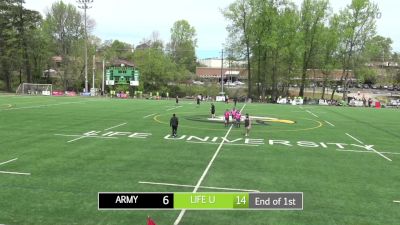 Replay: Life vs Army | Apr 6 @ 1 PM
Replay: Life vs Army | Apr 6 @ 1 PMApr 6, 2024
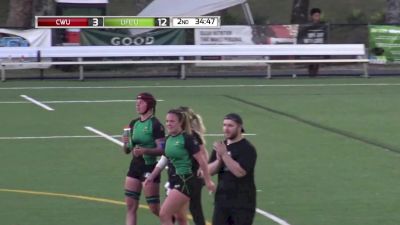 Replay: Life vs Central Washington | Mar 30 @ 7 PM
Replay: Life vs Central Washington | Mar 30 @ 7 PMMar 31, 2024
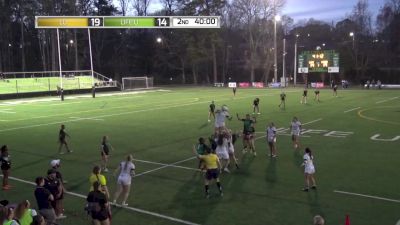 Replay: Life vs Lindenwood | Mar 16 @ 7 PM
Replay: Life vs Lindenwood | Mar 16 @ 7 PMMar 17, 2024
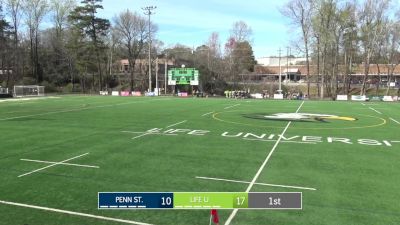 Replay: Life vs Penn St | Mar 16 @ 4 PM
Replay: Life vs Penn St | Mar 16 @ 4 PMMar 16, 2024
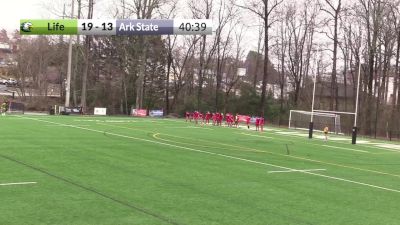 Replay: Life vs Arkansas St | Mar 2 @ 2 PM
Replay: Life vs Arkansas St | Mar 2 @ 2 PMMar 2, 2024
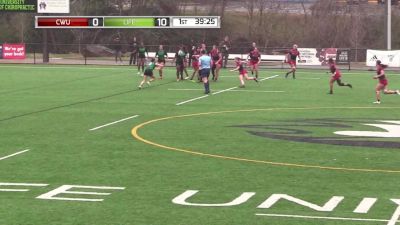 Replay: Life vs Central Washington | Mar 2 @ 11 AM
Replay: Life vs Central Washington | Mar 2 @ 11 AMMar 2, 2024
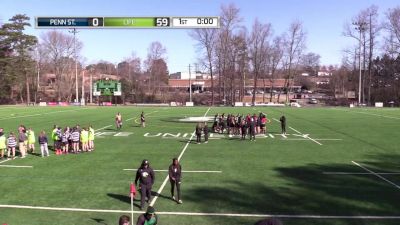 Replay: Life vs Penn State | Feb 25 @ 10 AM
Replay: Life vs Penn State | Feb 25 @ 10 AMFeb 25, 2024
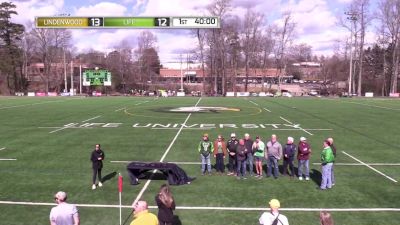 Replay: Life vs Lindenwood | Feb 24 @ 1 PM
Replay: Life vs Lindenwood | Feb 24 @ 1 PMFeb 24, 2024